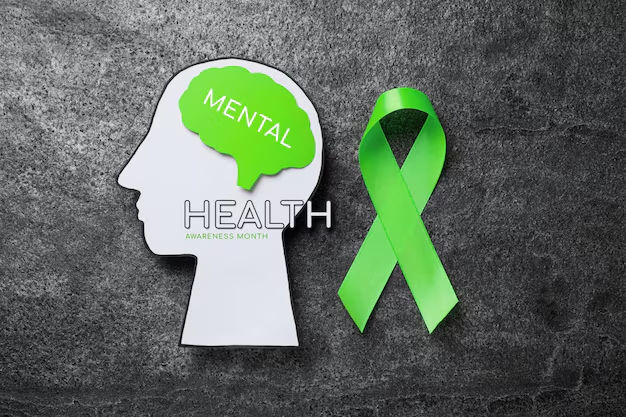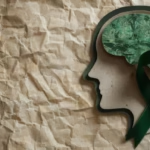Mental Health is much of the time portrayed as a quiet fight, one that many individuals battle with alone. A condition influences your psychological prosperity as well as your actual wellbeing, connections, and personal satisfaction. Notwithstanding its predominance, there stays a critical absence of grasping about sadness, its side effects, and the best ways of looking for help. It’s critical to perceive that downturn isn’t just inclination miserable or having a really difficult time — a serious psychological well-being condition requires consideration, care, and legitimate treatment.
In this article, we’ll investigate what sadness is, the normal side effects individuals experience, the variables that add to sorrow, and above all, how to look for help. Whether you are battling with wretchedness yourself or supporting somebody who is, this guide will furnish you with the instruments and information expected to explore through these difficult times.
What Is Depression
Despondency, or significant burdensome problem (MDD), is a temperament problem that influences your thought process, feel, and act. It is something other than feeling “down” for a couple of days — it is an inescapable and diligent feeling of misery or vacancy that impedes everyday working. Sadness can influence anybody, paying little mind to mature, orientation, or foundation, and it frequently appears in manners that can slip by everyone’s notice for quite a while.
At its center, despondency is an awkwardness in the mind’s science, frequently connected to neurochemical disturbances that influence temperament guideline. It tends to be set off by a scope of variables, including hereditary qualities, injury, life changes, and certain ailments. While the exact reason for despondency can differ from one individual to another, understanding that it’s a genuine ailment, not an individual shortcoming or a flaw is fundamental.
What is Mental Health
Mental health is an essential aspect of human well-being that impacts how individuals think, feel, and behave in everyday life. It affects how we relate to others, make choices, and deal with the stressors and challenges that come our way. Often overlooked or misunderstood, mental health plays a crucial role in an individual’s overall quality of life. Just like physical health, mental health requires attention, care, and effort to maintain. A person with good mental health tends to have a positive outlook on life, an ability to cope with life’s ups and downs, and strong emotional resilience. Yet, for many, mental health issues such as anxiety, depression, or stress can make these daily functions difficult, requiring interventions, support, and a focus on recovery.
What Mental Health Encompasses
Mental health encompasses emotional, psychological, and social well-being, affecting how we handle stress, relate to others, and make decisions. It is not merely the absence of mental illness, but also the presence of positive attributes like self-esteem, resilience, and the ability to engage meaningfully with the world around us. People with good mental health are able to form healthy relationships, manage their emotions effectively, and lead fulfilling lives. However, mental health can fluctuate and is influenced by a variety of factors, including life experiences, biological factors, and family history. There is no single cause of mental health issues; rather, they result from a combination of genetic, environmental, and lifestyle factors that can affect anyone at any time.
Challenges to Mental Health in Modern Life
One of the key challenges in maintaining mental health is managing the stress and pressures that modern life often places on individuals. Work demands, family responsibilities, financial concerns, and social expectations can all contribute to feelings of anxiety, worry, and overwhelm. In recent years, the pace of life has increased, and many people find themselves struggling to keep up with the constant demands placed on their time and attention. This can lead to burnout, mental exhaustion, and, in some cases, more severe mental health conditions such as depression or anxiety disorders. Stress, if not managed properly, can have long-term effects on mental well-being and physical health. It is therefore important to adopt strategies that promote relaxation, mindfulness, and mental rejuvenation.
The Impact of Negative Self-Talk on Mental Health
In addition to external pressures, internal factors such as self-criticism, negative thinking, and poor self-esteem can also have a significant impact on mental health. Many individuals have an inner voice that is highly critical, constantly pointing out flaws and mistakes. This internal negativity can lead to feelings of inadequacy and low self-worth, which in turn can create a cycle of negative emotions that are hard to break. Challenging these thoughts and learning to foster a more positive and compassionate internal dialogue is an essential step toward improving mental health. Cognitive behavioral therapy (CBT) is one therapeutic approach that focuses on identifying and changing negative thought patterns to help individuals develop healthier, more constructive ways of thinking.
Emotional Regulation and Mental Health
Another important element of mental health is emotional regulation—the ability to manage and respond to emotions in a healthy and balanced way. Emotions such as anger, sadness, fear, and joy are natural, but how we manage these emotions can have a profound impact on our mental health. When emotions are suppressed or not processed effectively, they can manifest as anxiety, depression, or even physical symptoms like headaches or digestive issues. Developing emotional intelligence, which includes being aware of one’s emotions, understanding their triggers, and learning how to cope with them constructively, can significantly enhance mental well-being. Practices like meditation, mindfulness, and journaling can also help individuals regulate their emotions and gain greater clarity and calm in the face of emotional upheaval.
The Role of Social Support in Mental Health
Social support plays a vital role in mental health. Human beings are social creatures, and having meaningful relationships with friends, family, and peers can provide a strong sense of belonging and security. These relationships act as a safety net during challenging times, offering empathy, understanding, and practical assistance when needed. Loneliness, on the other hand, can have detrimental effects on mental health, contributing to feelings of isolation, depression, and anxiety. Maintaining healthy social connections, whether through in-person interactions, online communities, or support groups, can foster a sense of connectedness and help individuals feel understood and supported. Sometimes, simply knowing that someone is there to listen can have a powerful effect on one’s mental well-being.
Physical Health and Its Impact on Mental Health
Physical health is also closely linked to mental health. Regular exercise, a balanced diet, and adequate sleep all contribute to improved mental well-being. Physical activity releases endorphins, which are chemicals in the brain that act as natural mood lifters. Moreover, exercise helps to reduce stress, anxiety, and depressive symptoms, promoting a sense of accomplishment and boosting self-esteem. A healthy diet that includes a variety of nutrients is also important for brain function and emotional regulation. Lack of proper nutrition can exacerbate mental health issues, making it harder to cope with stress and emotions. Lastly, sleep plays a critical role in mental health. Chronic sleep deprivation can increase the risk of developing mental health conditions, while sufficient rest helps the brain recover and function optimally.
The Importance of Seeking Help for Mental Health
When it comes to mental health, seeking help is crucial. There is no shame in acknowledging that you need support, whether it’s through talking to a trusted friend, seeking professional therapy, or exploring other resources such as self-help books or support groups. In fact, reaching out for help is often the first step toward healing. Psychotherapy, for example, provides a safe space for individuals to explore their thoughts and emotions with a trained professional who can offer guidance and support. Therapy can be particularly effective for those dealing with anxiety, depression, or trauma, providing tools and techniques to manage symptoms and improve overall mental health. Medications, such as antidepressants or anti-anxiety medications, may also be prescribed to help individuals manage more severe symptoms.
Addressing the Stigma Around Mental Health
One significant barrier to improving mental health is the stigma that surrounds mental illness. Many individuals hesitate to seek help because they fear judgment or discrimination. This stigma can make it difficult for people to openly talk about their struggles or seek the support they need. However, mental health awareness campaigns and the increasing openness about mental health issues in media have started to reduce this stigma. The more we talk about mental health in a non-judgmental and compassionate way, the easier it becomes for people to seek help and feel validated in their experiences. Normalizing mental health care is key to fostering a supportive environment where everyone feels comfortable prioritizing their well-being.
Conclusion
Emotional wellness is a dynamic and complex part of our lives that requires consideration, care, and support. Similarly as we do whatever it may take to take care of our actual wellbeing, it is similarly vital to focus on mental prosperity through taking care of oneself, profound guideline, social help, and, when important, proficient help. As we keep on perceiving the significance of psychological wellness, it is fundamental that we make spaces where individuals feel engaged to discuss their battles and look for the help they need. By zeroing in on the variables that advance mental prosperity and tending to the difficulties that can hurt it, we can develop a general public where psychological well-being is esteemed and focused on similarly as much as actual wellbeing.



